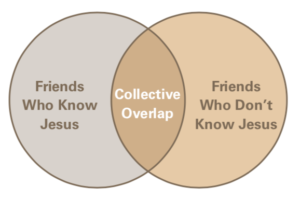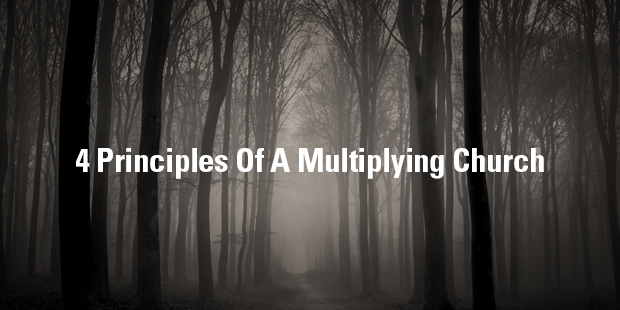
Pastoring Your Cul-de-Sac: Collaborative Living
Author Reggie McNeal invites us to get off our ass (biblically speaking) with a focus on the Parable of the Good Samaritan:
25 On one occasion an expert in the law stood up to test Jesus. “Teacher,” he asked, “what must I do to inherit eternal life?”
26 “What is written in the Law?” he replied. “How do you read it?”
27 He answered, “‘Love the Lord your God with all your heart and with all your soul and with all your strength and with all your mind’; and, ‘Love your neighbor as yourself.’”
28 “You have answered correctly,” Jesus replied. “Do this and you will live.”
29 But he wanted to justify himself, so he asked Jesus, “And who is my neighbor?”
30 In reply Jesus said: “A man was going down from Jerusalem to Jericho, when he was attacked by robbers. They stripped him of his clothes, beat him and went away, leaving him half dead. 31 A priest happened to be going down the same road, and when he saw the man, he passed by on the other side. 32 So too, a Levite, when he came to the place and saw him, passed by on the other side.33 But a Samaritan, as he traveled, came where the man was; and when he saw him, he took pity on him. 34 He went to him and bandaged his wounds, pouring on oil and wine. Then he put the man on his own donkey, brought him to an inn and took care of him. 35 The next day he took out two denarii and gave them to the innkeeper. ‘Look after him,’ he said, ‘and when I return, I will reimburse you for any extra expense you may have.’
36 “Which of these three do you think was a neighbor to the man who fell into the hands of robbers?”
37 The expert in the law replied, “The one who had mercy on him.”
Jesus told him, “Go and do likewise.”
Luke 10:25-37 (NIV)
We’re living in a bizarre polarity of unprecedented connectedness and unparalleled isolation.
When we finally get home, joining countless others in our cul-de-sacs or subdivision streets, we want to be home.
The Great Commission may carry you to the ends of the world, but it starts on your street. God has given us a perfect environment for demonstrating the gospel and advancing His mission, if only we would open our eyes to it. It’s that place you probably consider your personal and private fortress – your home. Hospitality is one of the simplest – and most exciting – ways to engage in God’s mission.
If we are ever going to join all our lives to God’s mission to change the world, we need to reclaim all of our ordinary pieces as a part of that gospel mission. We have to reject the notion that something has to be big or unusual to be significant. We will have to view the ordinariness of our lives as significant, and allow God to use our homes as a seed to be planted and grown, not something to be discarded or devalued.
We need to practice neighboring.
Just who is our neighbor? And, how can we serve our neighbors?
SOLUTION #2: Create collective overlap in your relationships with others
THE QUICK SUMMARY – Staying is the New Going by Alan Briggs
Do you get tired sitting in a pew? Have you ever fantasized about traveling to the other side of the world, telling people about the good news of Jesus Christ? Wake up and look around: The world is right here, waiting for the Good News to make itself known.
For too long we’ve outsourced God’s work in the world to missionaries “out there” at the ends of the earth. In reality, God wants us to love our neighbor right next door. He wants us to pray for the welfare of our zip code, to witness to the world outside our window. He wants us to be the church, the people of God, in conversation and meaningful engagement with the people God loves outside the walls of the church.
The stories in this book will change the way you look at your city and provide insights into how you can be an authentic Christian.
A SIMPLE SOLUTION
How well do you know the neighbors on either side of you? What about the ones across the street, or behind you? Live in an apartment complex? How well do you know your neighbors across the hall, on the floor above, or on the floor below?
As Christians, we most certainly have been commanded to “go unto the world,” but most of us forget that “the world” begins at our doorstep.
The place you already live is the most obvious, but most overlooked, place to start ministry. The church was born to a Spirit-filled group of disciples who expected to see the gospel spread from their place to the whole world.
People seeking to live a Jesus life and those who don’t know him alike are feeling the tug to put down roots in places and space again. I happen to think Christians need to hear this message the most, however, because cities are quickly becoming the lifeblood of mission. Our current places are becoming the next frontier, and neighborhoods are becoming parishes again, where churches anchor their communities and every Christian can live out our first vocation as a follower of Jesus eyeball to eyeball.
This is a return to something people understood before the global and digital age distracted us. Something in all of us wants to be connected to a place and the people who live in it. Those in our neighborhood and city are longing for it.
A key element of incarnational ministry is intentionally creating collective overlap where all those we call friends can gather – Christian and non-Christian – in one common space.
Finding collective overlap not only addressed the primary problems of an insular Christian community and a lack of exposure to the gospel among my non-Christian friends; it helped me to close the gap between outreach and relationship. My non-Christian friends were no longer projects; they were friends. The gospel became not something I was selling, but something I was living and weaving into every aspect of relationships.
Intentionally creating collective overlap for people who do know Jesus and those who don’t is a risk, but it’s surprisingly simple: our front yards, living rooms, and social gatherings are great, natural spaces for collective overlap to occur.
Alan Briggs, Staying is the New Going
A NEXT STEP
Recreate the drawing below on a chart tablet.

Author Alan Briggs believes that “God’s people become translators of the Good News when we are rooted in relationships and places.
With the above diagram in mind, read through the following questions for reflection from Alan Briggs. As you ponder each question, add names and answers to the questions to the diagram on the chart tablet.
- Write the names of both kinds of friends.
- What are some specific things you can do to develop collective overlap between friends who know Jesus and friends who do not? Write these alongside the names in a different color marker.
- What are some ordinary ways you can start the practice of faithfully loving those around you?
Excerpt taken from SUMS Remix #88-2, released March 2018.
This is part of a weekly series posting excerpts from one of the most innovative content sources in the church world: SUMS Remix book excerpts for church leaders.
SUMS Remix takes a practical problem in the church and looks at it with three solutions; each solution is taken from a different book. Additionally, a practical action step is included with each solution.
As a church leader you get to scan relevant books based on practical tools and solutions to real ministry problems, not just by the cover of the book. Each post will have the edition number which shows the year and what number it is in the overall sequence. (SUMS Remix provides 26 issues per year, delivered every other week to your inbox).
> > Subscribe to SUMS Remix <<

Tags: Alan Briggs, Neighborhood, SUMS Remix, collaborative living, sharing















